Tooth decay is a common disease today, however, when encountering the situation of tooth decay bleeding , it is a worrying problem. At this time, it is very possible that the decay has spread to the tooth pulp, causing damage to the pulp. If not treated promptly, it will cause pulp necrosis. Once the pulp is lost, the tooth will no longer exist on the jaw.
1. Common conditions of bleeding tooth decay?
Bleeding tooth decay is a serious complication when encountering severe tooth decay. At that time, bacteria can destroy the structure of the tooth and penetrate the pulp, disrupting the nerve system of the tooth pulp, causing the patient to feel toothache and discomfort.
Due to daily chewing activities, tooth decay bleeds or food gets stuck in the cavity, which will gradually adversely affect the blood vessels under the tooth. There are two common conditions of bleeding from deep teeth:
1.1. Little bleeding and stops on its own afterwards
Most cases of bleeding from deep teeth usually occur in a fairly short period of time, with little bleeding and stop on its own afterwards, usually lasting from 10 to 15 minutes. At this time, the patient needs to take quick hemostasis measures and limit strenuous exercise.
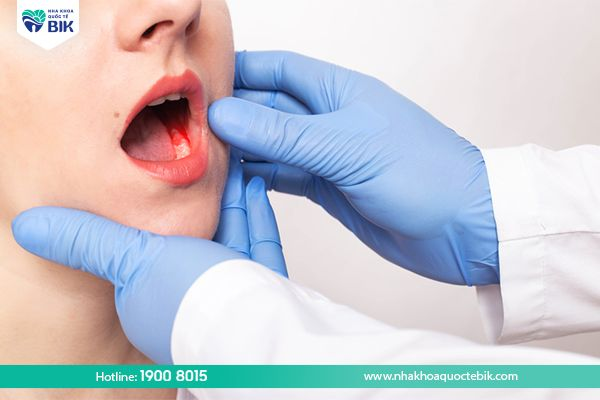
1.2. Heavy bleeding that cannot be stopped
This is a fairly rare case of bleeding from deep teeth. However, if you experience this condition, it is highly likely that the tooth structure has been completely destroyed, combined with pulpitis, causing severe pain. When this occurs, the patient needs to go to a dental facility immediately for proper treatment.
2. How dangerous is bleeding tooth decay?
Tooth decay is a common disease, the main cause is long-term plaque combined with bacteria in the oral cavity. Although this is a common condition, customers should not be subjective because over time tooth decay can cause pulp necrosis, even the risk of tooth loss.
In addition, when tooth decay bleeds, it can also cause some complications including:
– Blood infection: Blood infection caused by tooth decay can be extremely serious, because at that time, doctors will remove the infected tooth body and gums. In addition, implanting new teeth will also be very difficult because at this time the gums no longer have room to implant the implant.
– The body is tired and weak due to the pain and difficulty of daily chewing activities combined with the lack of nutrients provided to the body leading to weakness.
– Bleeding from tooth decay can also cause other dental diseases such as gingivitis, bad breath, etc.
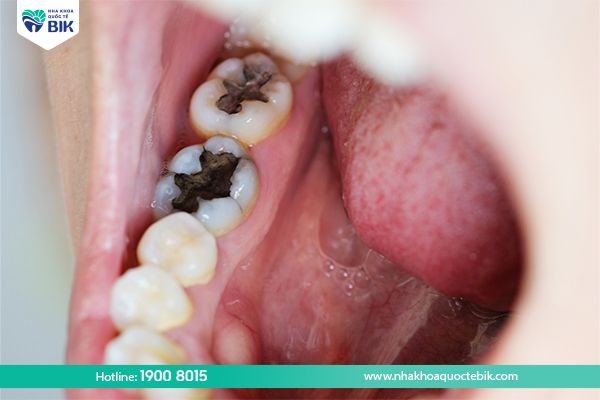
3. Causes of bleeding cavities
If tooth decay is not treated, it will become more and more severe and can cause pain in the gums under the decayed tooth and prolonged bleeding. This can be a warning sign of bad problems happening in the body. Some common causes of bleeding cavities include:
– Tooth decay spreads to the gum area, at the same time making the connections between the gums and the tooth root and crown weaker. In addition, loose teeth also cause damage to the gums, especially when subjected to external impacts such as brushing teeth, rinsing mouth, and chewing hard foods.
– Bacteria that cause tooth decay penetrate the pulp, causing damage to the tooth, killing the pulp, even necrotic cavities down to the gums, forming inflammatory foci, leading to bleeding. In addition, the gums can also swell and ooze pus if touched lightly.
– Bacteria that cause tooth decay spread to surrounding areas such as the jaw base and form a bacterial nest (abscess), over time the abscess will burst and cause bleeding.
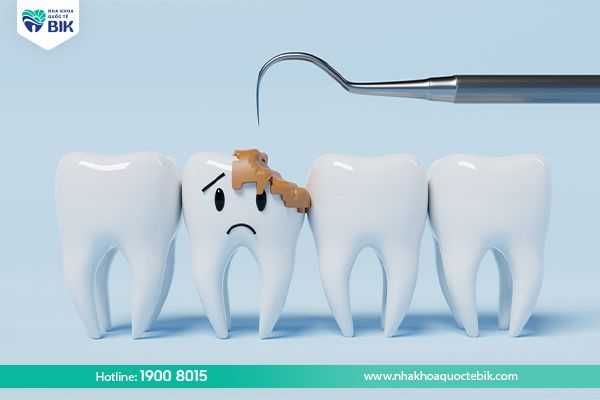
4. Treating bleeding from cavities at the dentist
When experiencing bleeding from cavities, it means that an infection in the pulp has occurred, a more serious complication is possible tooth loss. At this time, patients need to go to dental facilities for doctors to conduct a general examination and take X-rays to examine the level of pulp infection. From there, the most optimal treatment measures are given for each case.
Depending on the extent of tooth damage, this bleeding decayed tooth can be preserved or not:
– Mild pulpitis, can be treated: Doctors will treat pulpitis and then seal the root canal to prevent the spread of bacteria and the formation of abscesses. At this time, tooth conservation restoration with porcelain crowns is a necessary indication to help the tooth be strong and protect the tooth that has had its pulp removed inside.
– Severe pulpitis that cannot be treated: At this time, the decayed tooth is loose and cannot be preserved anymore, the doctor will proceed to extract this tooth, clean the infected gum area. Restoring a new tooth by implanting a tooth to restore chewing function and aesthetics is the most necessary thing at this time.
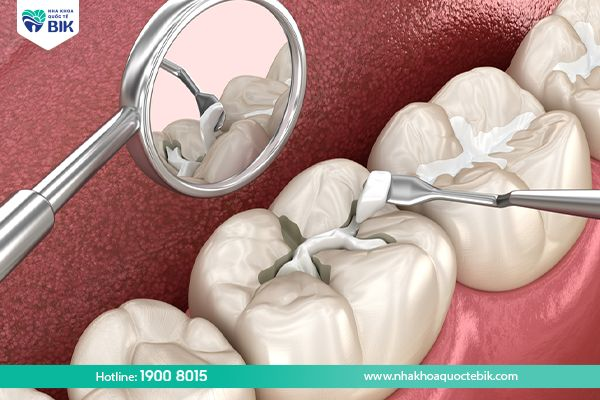
5. Soothe bleeding cavities at home
In case of bleeding cavities and you cannot go to the dentist for treatment, there are a few ways to limit bleeding as follows:
– Use saline to disinfect, prevent bleeding and gum infection from spreading to other healthy teeth. You should hold the salt water in your mouth and stir well so that the solution can penetrate the gums and teeth. You can replace it with warm salt water at home, but do not mix it too salty or too diluted.
– Only use soft foods, supplement with fruits rich in vitamin C to soothe the pain in cavities.
– Limit eating hard foods, do not drink coffee, beer, alcohol, foods and drinks that are too hot or too cold.
– Use some pain relief measures such as: Gargling with guava leaf water, clove oil, apple cider vinegar,…
– When eating, avoid chewing in the painful cavity area.
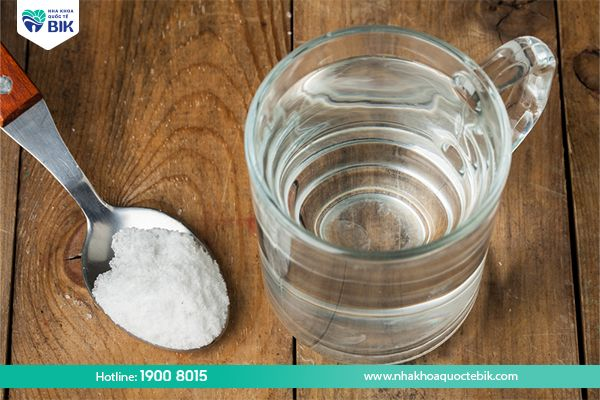
6. How to prevent tooth decay from bleeding?
To prevent tooth decay from bleeding, you should note the following:
– Brush your teeth at least twice a day, especially after each meal to remove food debris on the tooth surface
– Use a soft-bristled toothbrush with moderate brushing force to avoid affecting the enamel.
– Replace your toothbrush every 3-4 months to avoid bacteria accumulating and causing tooth decay.
– Use toothpaste containing a lot of fluoride to help keep teeth strong.
– Combine with dental floss to remove food debris in between teeth.
– Maintain a scientific diet, supplement with necessary vitamins and minerals to support increased resistance to help the body fight harmful bacteria.
– Visit the dentist regularly and have your teeth cleaned at least every 6 months to ensure regular check-ups on oral health.
So, bleeding cavities are a rather dangerous condition because the bacteria that cause cavities spread to the pulp, causing necrosis, and also adversely affecting other areas. When encountering this condition, patients should not be subjective but should immediately go to reputable dental facilities for treatment. Among them, BIK International Dental Clinic with a team of specialized doctors and the most modern equipment is a reliable destination that you can choose.


















